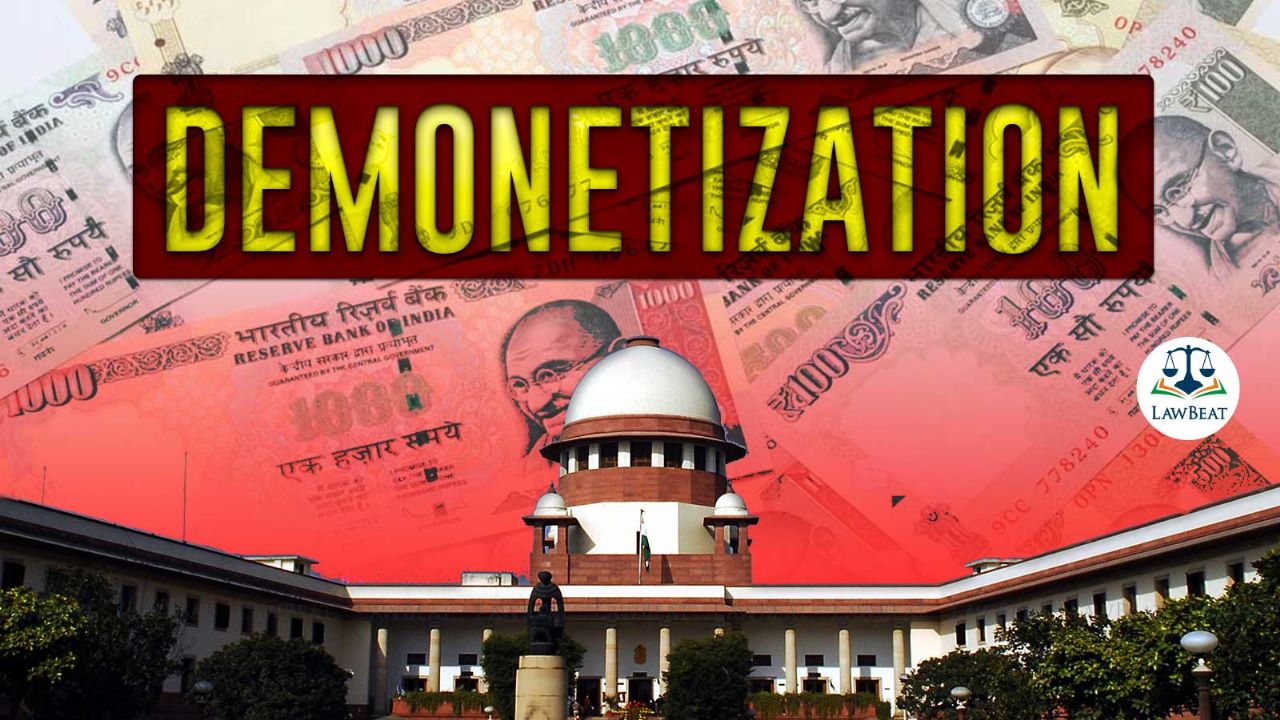Demonetization process not flawed: SC upholds governments' decision with 4:1 majority

Supreme Court constitution bench by a 4-1 majority has affirmed the Union government’s demonetization policy. In her dissenting opinion, Justice Nagarathna has held the policy to be unlawful.
Holding that notification issued by the Central Government announcing the demonetization of currency notes of ₹500 and ₹1000 satisfied the test of proportionality, a Constitution Bench of the Supreme Court today dismissed the pleas challenging the said decision.
On November 8, 2016, Prime Minister Narendra Modi through a televised address declared that denomination notes of Rs 500 and Rs 1000 would no longer be legal tender.
The pleas challenging the demonetisation decision were filed way back in 2016 and sought quashing of the government’s decision to demonetise Rs 1,000 and Rs 500 currency notes on grounds that it infringed on citizens’ right to life and to trade.
Justice BR Gavai has authored the judgment in which he observed that from the records it appeared that there was consultation between RBI and the Central government, and thus there was reasonable nexus between the purpose to be achieved by the said decision and the limitations on the constitutional rights.
Referring to the powers of the RBI available under Section 26 (2) of the RBI Act, Justice Gavai said that such power cannot only be utilised for only a particular series of bank notes.
"The notification issued by the government thus satisfies the test of proportionality and the time period provided for exchange of currency cannot be said to be unreasonable", Justice Gavai added.
Notably, Justice BV Nagaratha, who was also a part of the constitution bench hearing the challenge to the demonetisation issue, has delivered a dissenting opinion.
Terming the decision to be "unlawful", Justice Nagarathna observed that the powers of the Parliament could not be exercised through a gazette notification, like the one issued in the instant case, but only through a legislation.
Looking at the records submitted by RBI, Justice Nagarathna said that it could be seen that there was no application of mind by the RBI and it acted on the "suggestions made by the Central Government".
"In my opinion, the action of demonetization was unlawful, and the impugned notification is unlawful and the action of demonetization is vitiated...", Justice Nagarathna observed.
In 2016, the Supreme Court transferred all petitions pending before various High Courts to itself and referred the matter to a 5-judge Constitution Bench.
The matters were not taken up since then however, this year they had been finally listed by Chief Justice of India UU Lalit.
On October 12, a Constitution Bench of the Supreme Court agreed to hear the challenge to demonetisation and the implementation of the same in November 2016.
Justice Nazeer thus directed the Centre and RBI to file comprehensive affidavits in the matter.
The five-judge bench, comprising Justices S Abdul Nazeer, BR Gavai, AS Bopanna, V Ramasubramanian, and BV Nagarathna, earlier questioned if the present matter had become academic or if it should be heard.
Case Title: Vivek Narayan Sharma vs. Union of India
